-
2GO Organics
-
Alsum Specialty Produce
-
Avrom Farm
 Shop Now
Shop NowWe manage our farm as an ecosystem by integrating livestock, grain, pasture, and vegetables to create a farm-ecosystem that is both resilient and productive. By farming in this way we are able to produce exceptionally flavorful and nutritionally dense food.
-
Baker Farm
-
Beiler Farm
Shop NowBeiler Farm in Fennimore, WI
-
Belleharvest
-
Bering Bounty
-
Better Way Farms
-
Black Garlic North America

-
Bur Oaks Farm

-
Bushel and Peck's
-
Caprine Supreme
Shop NowCaprine Supreme is a local Wisconsin cheese purveyor. You can expect a 7oz package of delicious feta cheese!
-
Carlson-Arbogast Farm
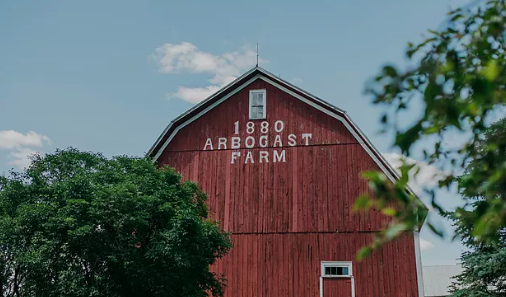
-
Century Sun
 Shop Now
Shop NowCentury Sun Oil, LLC, was founded in 2009 with the vision of producing a healthy, local, certified organic cooking oil. Located on a 140-year-old family farm just outside Pulaski, Wisconsin, our sunflower oil production facility incorporates the original dairy buildings on the farm. Our buildings were re-purposed with new updates to create a truly local efficient system.Century Sun Oil starts by requiring a specific variety of certified organic high oleic sunflower seed to be used. Planting, soil nutrition and crop monitoring throughout the growing season is done in partnership with our organic farmers. From there, the seeds are carefully harvested and stored until ready for pressing. All operations from cold pressing, filtration, bottling, packaging and shipping are performed at the Century Sun Oil facility. Our only focus is sunflower oil, we do not process any other seeds.To complete the eco cycle, our residual meal is sold to organic animal farmers for a much-needed high protein supplement. This is an added benefit for both us and the farmers, as there is no waste being created.Century Sun Oil's processing methods are also certified organic, which means no chemicals are used in any part of our production system. Our cold-pressed and lightly-filtered methods allow for all of our sunflower oil's natural healthy constituents to remain for you to enjoy.
-
Century Sun Oil
Shop NowCentury Sun Oil, LLC, was founded in 2009 with the vision of producing a healthy, local, certified organic cooking oil. Located on a 140-year-old family farm just outside Pulaski, Wisconsin, our sunflower oil production facility incorporates the original dairy buildings on the farm. Our buildings were re-purposed with new updates to create a truly local efficient system.
Century Sun Oil starts by requiring a specific variety of certified organic high oleic sunflower seed to be used. Planting, soil nutrition and crop monitoring throughout the growing season is done in partnership with our organic farmers. From there, the seeds are carefully harvested and stored until ready for pressing. All operations from cold pressing, filtration, bottling, packaging and shipping are performed at the Century Sun Oil facility. Our only focus is sunflower oil, we do not process any other seeds.
To complete the eco cycle, our residual meal is sold to organic animal farmers for a much-needed high protein supplement. This is an added benefit for both us and the farmers, as there is no waste being created.
Century Sun Oil's processing methods are also certified organic, which means no chemicals are used in any part of our production system. Our cold-pressed and lightly-filtered methods allow for all of our sunflower oil's natural healthy constituents to remain for you to enjoy.
-
Cherryland's Best
-
Clearview Dairy
-
Clover Hill Farms
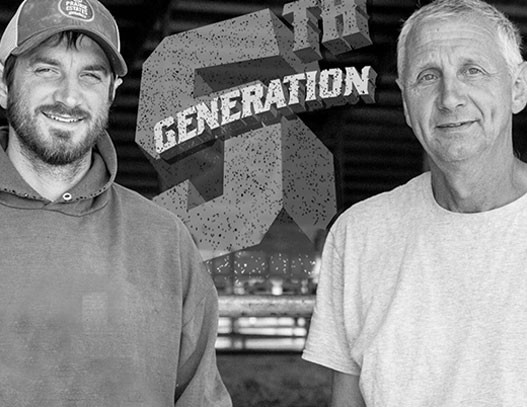
-
Clover Meadows Family Farm
Shop NowOur small family farm is located within the beautiful rolling meadows of Marathon County, Wisconsin, just east of Athens. We manage and care for a small herd of dairy cattle that are A1 beta-casein free. This helps our family to focus on creating quality milk products for our customer friends. Our family works together in this endeavor.
Our cows are 100% naturally grassfed (No certification). They graze green pasture during the growing season and quality grass hay through the winter. All of our feed is biodynamic.
Good husbandry is a priority for us. Our cattle is always given access to the outdoors and shelter, if needed. We try to respectfully care for them in a humane way with the “Golden Rule for Cows” in mind. “Do unto cows as you would have others do unto you, if you were a cow.” We do not give our cattle any antibiotics or synthetic hormones. They maintain good health with nutritious food, fresh air and sunshine, and natural herbal treatments, if necessary.
-
Country View Dairy
-
Crave Brothers
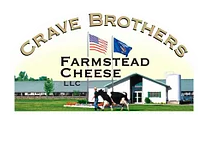
-
Crisp Country Acres
-
Dalla Terra Pasta
-
Dilly Dally
-
Driftless Breeze
-
Driftless Organics
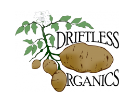 Shop Now
Shop Now…begins back in 1993 when we were just nine and eleven and our mother assigned us the summer project of growing potatoes. Being ambitious farm kids we planted a quarter acre of twenty varieties. Each year our plot expanded and with it our dreams of becoming ‘real’ farmers in our own right. Soon our farm-kid ambition had us buying potato planters and tractors and hiring our mother to drive us to the Dane County Farmer’s Market. The rest is history. What began as a summer project has now taken the shape of our dreams. We manage over 100 acres of ridge and valley fields in the enchanting Driftless region of Southwest Wisconsin. Our farm is called Driftless Organics and beyond our legendary potatoes, we produce fruit, vegetables and sunflower oil that we share via farmers markets and grocery stores throughout the upper Midwest.
-
Driftless Provisions
-
Ellis Family Farms
-
Ernessi Farms

-
Family Farm Fresh
-
Farmhouse Bakery
-
Farmhouse Kitchens
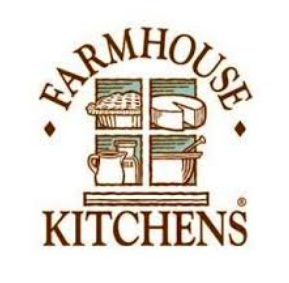 Shop Now
Shop NowWe combine a hundred years of dairy experience with the freshest Wisconsin sweet cream to create a truly unique butter with a traditional cultured flavor and a silky dense texture.
This butter is turned out of the churn and formed the old-fashioned way... never pumped or extruded. You’ll notice the difference this gentle treatment makes: great mouth-feel, rich and lingering flavor, enhanced sautéing and silkier sauces.
-
Fine & Raw
-
Fix Simple Syrups
-
Flyte Family Farms

-
Freis Von Kiel

-
Fresha Produce
-
Full Circle Community Farm
-
Full Harvest Farm
-
Gavin Orchards
-
Great Lakes Potato Chips
-
Gwenyn Hill Farm
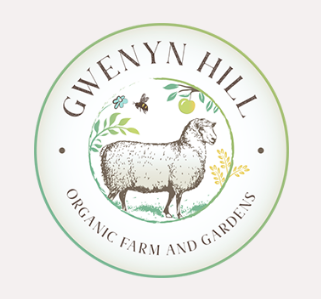 Shop Now
Shop NowNestled in Wisconsin’s Lake Country just 25 miles west of Milwaukee, Gwenyn Hill Farm is cultivating certified organic food while preserving the beauty and biodiversity of its fields and woodlands.
-
Heritage Orchards
-
Hot Dish Pantry
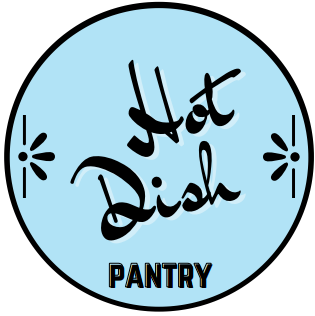 Shop Now
Shop NowWhere the Midwest and the World Meet. Using locally produced ingredients to craft ready-to-heat meals. Stock your Freezer and Fridge.
-
IL Ritrovo
-
Iron Grate BBQ

-
J&R Groves
Shop NowA citrus grove in Leesburg, Florida
Ed James focuses on using cover crops to increase soil health and help prevent citrus greening in his orange groves
-
James Lake Farms
-
Jandt Brothers Produce
Shop NowLocated in Northern Wisconsin.
-
Karmalize Me
-
Keil & Sons
-
Kelley Creek Gardens
Shop NowOrganic vegetable producer is Centreville, MI
-
Kilgus Farmstead
Shop Now"At Kilgus Farmstead Creamery we bottle milk exclusively from our own small herd of Jersey dairy cows. Whether on pasture in April through November, or cozy in the warm barn in winter, our cows eat feed grown almost entirely by the Kilgus family. Our cows and our small on-farm bottling plant are both located on the same property, providing us with maximum control over our product from start to finish. All of our operations are designed to ensure that our customers always receive the safest, freshest, and highest quality milk possible."
-
Komunity Kombutcha
-
LaClare Family Creamery
-
Let It Ride
-
Lewiston Farmstead
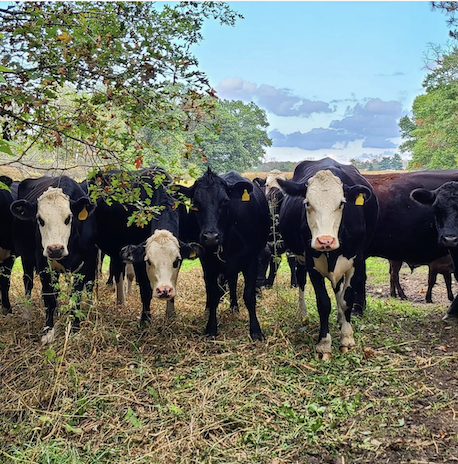
-
Madison Sourdough
 Shop Now
Shop Now1 am. Time to bake the bread and pastry. Our ovens are rolling and the start of a carefully orchestrated morning of fermentation, jazz, rock’n'roll, and mixing begins. The bakery represents a cycle of production utilizing natural processes to transform humble ingredients into complex and nourishing breads and pastries. A loaf of our bread takes 36 hours start to finish, from the critical step of building our leaven to baking the finished loaf.
We produce breads and pastries 360 days of the year, supplying not only our cafe with unique breads and pastries, but also distributing the freshest bakery to Madison’s finest restaurants, grocery stores and coffee shops. We begin our day early so our customers across the city can experience our craft at its best.
We specialize in naturally leavened, ie sourdough, breads using Wisconsin grown wheat, rye, and corn. Our pastries are called Viennoiserie and are based on classic French techniques. Viennoiserie are yeast leavened breakfast pastries. We laminate all of our Viennoiserie with premium Wisconsin butter and enrich our doughs with local eggs and Sassy Cow Milk. -
Marcoot Jersey Creamery
-
Mckaskle Family Farm
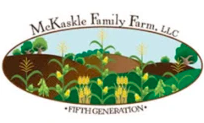 Shop Now
Shop NowAs fifth generation farmers, Kaye and Steve McKaskle decided to break the mold and pioneer organic farming in Missouri. It started with cotton, and grew into popcorn, Basmati and Long Grain rice, soybeans, corn, cotton, and oats. Now, McKaskle Family Farm has some of the highest growing and manufacturing standards around.
-
McKaskle Family Farm, LLC
Shop NowCertified Organic by OCIA. Non-GMO Project Verified, Certified Kosher, and Grown in the USA.
McKaskle Family Farm proudly plants, farms, processes, and packages only the best organic rices available. All of our rices are naturally gluten free and vegan. You can choose from brown or white long grain, brown or white Basmati, or brown or white Jasmine. Whichever variety you choose, rest assured that no pesticides nor herbicides were used in producing these fine grains.
"From Start to Finish" has always been the motto of Texas Best Organic Rices. McKaskle Family Farm is continuing that rich heritage as we only frow, mill, and package the finest organic, Non-GMO Project Verified rice available.
Braggadocio, Missouri
-
Meadowlark Organics
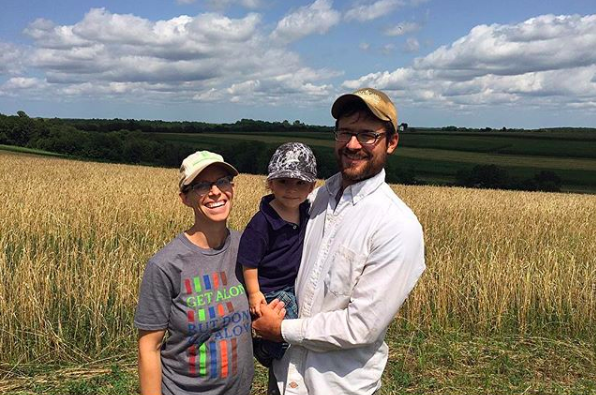
-
Mick Klug Farm
-
Mighty Vine
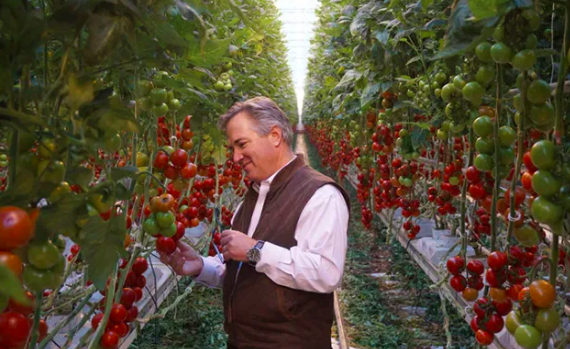
-
Milk & Honey
-
Nessalla Kombucha
-
Nichols Farm & Orchard
 Shop Now
Shop NowThe Nichols Farm & Orchard story began in 1978 with Lloyd and Doreen Nichols’ backyard garden. Lloyd had always loved to garden, and with visions of becoming self sustained the family moved from Lombard and the backyard garden, to their first 10 acre parcel in Marengo, IL. They bought animals, made butter and cheese, cultivated 4 of the acres, and planted a small orchard. The yield was much more than Lloyd and the family needed, so he began selling the vegetables out of the back of his truck and became a vendor at the Evanston Farmers Market.
Over 30 years later, Lloyd still considers himself a market gardener and attributes the vast variety of fruits and vegetables the farm cultivates to that gardener’s spirit and love for variety. The farm still sells their bounty at the Evanston Market, but in the years since the late 70’s the number of markets has grown to 12-14 in any given year, and countless restaurants and CSA customers.
Today, Lloyd’s sons and grandchildren work and live on the farm carrying on the spirit and love for the land for future generations of market customers and chefs. The farm grows over 1,000 different fruits and vegetables with over 200 varieties of apples alone. Every year brings a new variety and discovery for the farm and the loyal customers, and Lloyd and the family hope to do so for many more years to come. -
Nordic Creamery
-
Omena Organics
-
Origin Breads
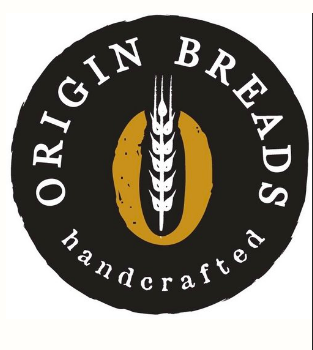 Shop Now
Shop NowFor us, bread is art. Flour, water and salt are our media. Fermented dough is our canvas. But to find the real beauty in our loaves you must tear through the rustic shell to see, smell and taste what lies within. With every loaf, we try to honor the hard work of our farmers and millers by using time honored baking techniques that coax maximum flavor and nutrition out of the organic grains. This is not factory bread. From the field to your table, many hands are behind the creation of this loaf, and with you, it ends. While enjoying with friends and family, we hope you’ll take a moment to appreciate the origin of your bread.
-
Park Ridge Organics
-
Pheonix Bean
-
Pocket Latte
-
Pocket Latte
-
Potter's Crackers
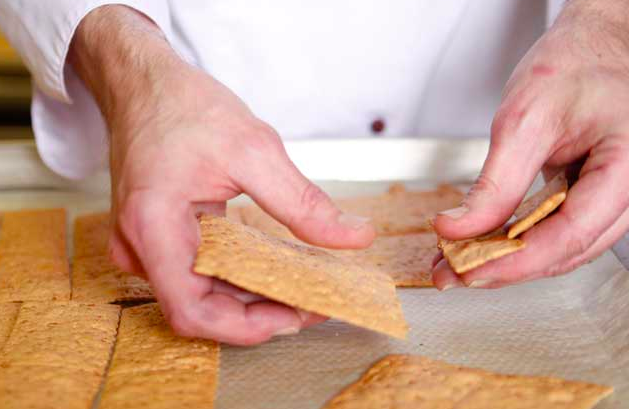 Shop Now
Shop NowMISSION
Our mission is to sustainably produce high quality, organic crackers and cracker products for the great people of Wisconsin and beyond.
OUR STORY
Potter’s Crackers are made by Potters Fine Foods LLC. The company was started by Peter Potter Weber and his mom, Nancy Potter, in 2006. Pete is a food science graduate of the University of Wisconsin and Nancy previously owned the New Glarus Bakery (New Glarus WI) for 25 years. The two of them saw the specialty cheese industry in Wisconsin exploding with exceptional cheeses and no deserving cracker to accompany them. They combined their passion for good food to make a cracker that truly delivers the flavors of Wisconsin to you.
After Pete graduated from the University of Wisconsin he attended graduate school at UC-Davis. He fell in love with Cali and opened a west coast Potter’s Crackers production facility in Sacramento. Peter loved providing our friends in California with our same small batch, artisan, organic crisps and crackers that folks in Wisconsin have been enjoying but recently he heeded the call to other pursuits. We are transitioning all of our production back to Wisconsin. We will continue to provide all of Potter’s customers from coast to coast with the crackers, crisps and oysters that they have come to expect from Potter’s.
OUR INGREDIENTS
Potter’s whole grain, handmade, crackers, crisps and oysters are produced with locally sourced whole-wheat flour and local milk and butter in Madison Wisconsin. Most of the produce we use comes from small, local farms. Potter’s offers 7 year-round varieties of crackers, 4 crisps and 4 oyster flavors to fulfill all your cracker needs! -
Produce With Purpose
Shop NowOur farm consists of around two acres on the farm homestead with other acreage rented within six miles of the farm.
We love diversity, and we believe that not all carrots are orange and potatoes brown. We love to educate people on the value of eating healthy and encouraging youth (and adults) to find out more about where there food comes from! -
Quince & Apple
-
Red Barn Family Farms
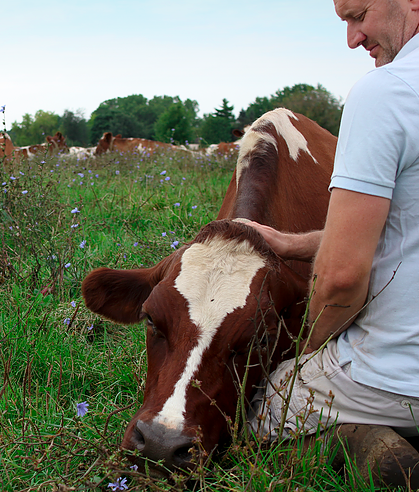 Shop Now
Shop NowRed Barn Family Farms was founded in 2008 with a mission to preserve small family owned and operated farms by paying fair and sustainable wages based on humane, ethical animal care. Over the years we have cultivated relationships with some of Wisconsin's best cheesemakers who craft our premium milk into delicious, award-winning cheese.
-
Revol Greens
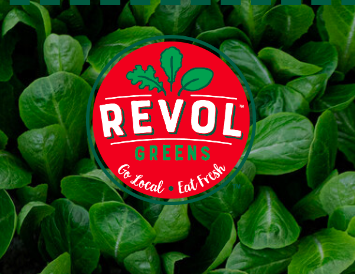 Shop Now
Shop NowOur premium lettuce and greens are grown with care in our greenhouse but the process starts well before that. We trial hundreds of seed varieties to find the best tasting highest quality, always non-gmo lettuce and greens available.
-
Rishi Tea
-
River Valley Ranch
-
Roskom Meats
-
Ruhlig Farms, LLC
-
Saffi Foods
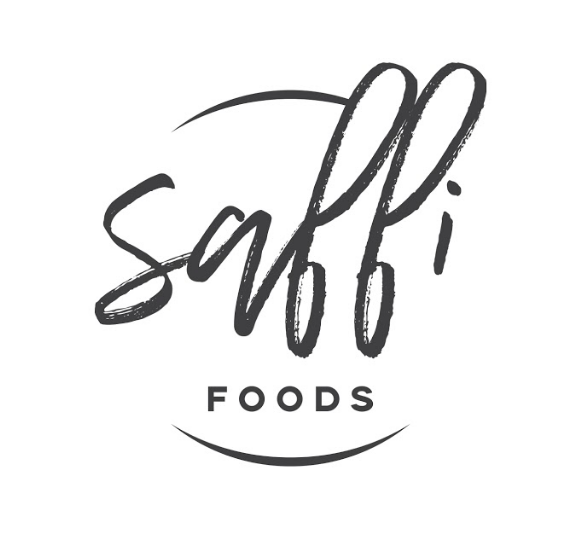 Shop Now
Shop NowWe appreciate all of the ingredients Mother Nature gives us and we recognize our responsibility to protect the environment. That's why we are focused on providing zero waste packaging options to our customers. We partner with restaurants to collect their used glass bottles, so we can recycle, sanitize and refill them with our premium oils and vinegar. From our partner farms to the packaging we use, Saffi Foods aims to reduce our carbon footprint, waste and any negative impact on our Earth.
-
Sassy Cow Creamery
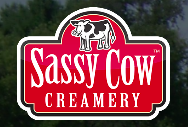 Shop Now
Shop NowOur farms are placed on 1700 acres, over 2.5 square miles, of pasture and fields of corn, soy beans, alfalfa, and wheat. The Creamery sits between the two farms owned by brothers James and Robert Baerwolf. From these two farms we produce 100% of the milk used at the Sassy Cow Creamery.
Our love for all dairying led us to a unique situation of having the two distinct herds, traditional and organic. Our traditional herd started in the 1990’s with 50 cows and has grown with our family to the current size of 600 cows at the traditional farm. The traditional cattle live on a new farm site built in 1999 and expanded in 2003. In 2017 a state-of-the-art rotary parlor was built. The cows are housed in a sand bedded freestall barn and during the nice times of the year, cattle can go out on grass pastures to graze, exercise and enjoy the sun. -
Saxon Creamery
Shop NowHANDCRAFTING SAXON CHEESES
Milk arrives at the creamery fresh from the farm. Each wheel is crafted by hand to ensure the correct flavor profile and texture. Once formed into wheels, the cheese rests and ages in our caves. While there, it is tended to by our in-house affineur until it reaches its peak flavor. Only then will we release it for sale.
THE SAXON HOMESTEAD FARM
Our partner, Saxon Homestead Farm, passionately values the land and cows. That means Saxon uses a special grazing system to maximize the space on which the cows graze, offering two to six acres of fresh grass paddocks for the herd. Each pasture contains up to 35 plant species, including cool and warm seasonal grasses, fescues, clovers, alfalfa, and trefoil, all of which contribute to the unmistakable flavors that have gained Saxon cheeses recognition both nationally and globally.
-
Shoreline Fruit
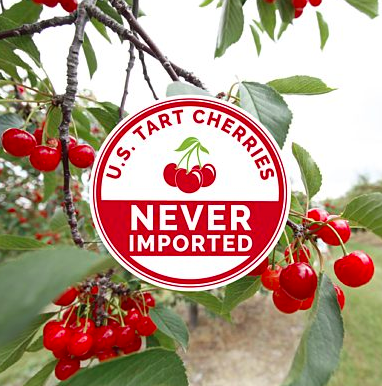 Shop Now
Shop NowWhat began as plans by two sets of brothers in the late 1960s, has now grown into the Shoreline Fruit cooperative of growers, 6,000 acres of orchards, and a typical harvest of more than 25 million pounds of Montmorency tart cherries each year. Today, we are proud to be the largest tart cherry operation in North America.
We own the land, grow the fruit, and harvest at the peak of ripeness to ensure fresh-from-the-orchard taste straight to the table. -
Siren Shrub Co.
-
Slide Gourmet Potato Chips
-
Soap Junkii
-
Spicewalla
-
Spicewalla
-
Springdale Farm
-
Stoltzfus Farms
-
Sunset Apiaries
Shop Now"Our business was started back in 2003 when a high school project prompted Philip to present on "Something Special from Wisconsin" for his FFA class. At that time he was working at a local cafe and started talking with one of the regular customers, Dave Foster, who lived in the area and kept honeybees. After their conversation, Philip decided honey would be the product to present on for his FFA class.
The interest sparked by this project didn't stop once completed. Philip continued to speak with Dave about honeybees. In time he began to learn the importance of pollination, how to manage a hive of honeybees, and of course how to make and harvest honey. A year after that, Philip purchased his very first colonies.
Today, Philip along with his wife Katie run around 200 hives in Elkhart Lake and the surrounding areas. The majority of the honey their bees produce comes from basswood trees, black locust, and yellow and white clover. The colonies are overwintered in Wisconsin, meaning they are kept in the state all year long. Philip and Katie strive to maintain healthy honeybees and produce a quality, natural honey for their customers."
From Sunset Apiaries website.
-
Superior Brand
-
Superior Fresh
-
Sweet Comb Chicago
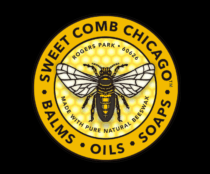 Shop Now
Shop NowAbout Sweet Comb Chicago
You may be wondering the reason for the name of this company.
Well, As I began reading about the plight of honey bees and Colony Collapse Disorder, I wondered what I could do.
Beekeeping is something I always wanted to do but, like many, I felt keeping bees in the city just didn’t make sense.
There are many things in the world I cannot change but this is a problem I could actually do something about.
We Care About The Bees
These days, I’m a bit over-protective of my bees and on the verge of breaking out cigars every time I see the familiar small swarms outside the hive that suggest orientation flights of new bees.
It’s been said that 1 out of every 3 mouthfuls of food we consume is made possible by pollinators like bees and it is certain that some crops are pollinated exclusively by bees.
Sweet Comb Chicago was established in a North side backyard in the Rogers Park neighborhood of Chicago.
Our Mission
The idea behind our apiary is simply to help the bees by providing them with a diverse range of nectar away from the mono cultures created by big industry.
We have been continuously amazed and have grown smitten with the bees as we watch them go about their daily business right in our own backyard.
Chicago is one of the few places where the number of honey bees seems to be increasing slightly – thanks to backyard and roof top beekeepers. With your support, we’d like to do our part to ensure this trend continues, so please do your best to support local beekeepers.
About The Bees
Is it surprising to learn that the majority of a colony comprises of female bees? In fact all of the workers are female.
Worker bees live 6 weeks in the summer months, and 4-9 months during winter months while the queen bee can live for 5 years. During the busy summer months the queen will lay 2500 eggs per day.
She can control weather she lays female or male eggs. Eggs she fertilizes become female. In other words male bees inherit genes only from their mothers, while female worker bees inherit genes from mother and father.
Drones or male bees are larger and have no stinger. They do no work and are cared for by the females at least until fall.
There are many things in the world we cannot change, but this is a problem I can actually do something about.
We Do It For The Bees
It’s difficult to know where to begin when considering the importance of bees, and the challenges these beautiful little creatures are faced with.
Unfortunately, even trace amounts of the chemicals contained in pesticides, over time, can be detrimental to a colony and may be a significant contributor to Colony Collapse Disorder.
Harmful parasites, such as mites, combined with chemical exposure, are greatly reducing the number of bees available to carry out their important function.
In addition to producing honey and beeswax, bees pollinate the plants that produce fruits, vegetables, and nuts worldwide.
While the population has been dwindling for years, the bee shortage is reaching alarming proportions. In fact, some experts predict a global food production crisis.
The situation has worsened and farmers have started “renting” bees to pollinate crops, paying beekeepers to put hives on their farms.
Join us and help us save the bees! -
T-Dog Hot Sauce

-
The Only Bean
